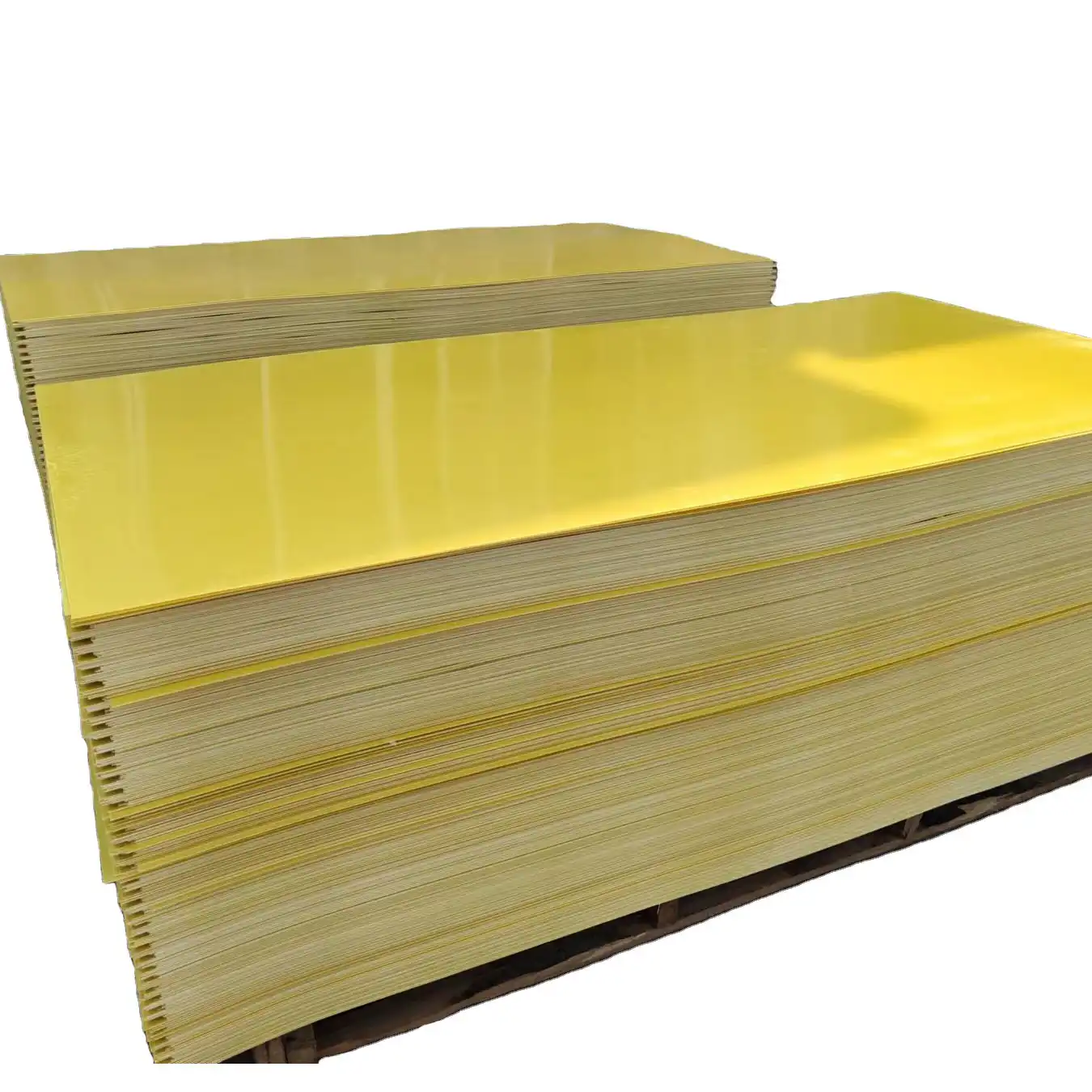How Effective Is 3240 Epoxy Sheet as a High-Voltage Insulator?
Unparalleled Insulation Performance
3240 epoxy sheet demonstrates unparalleled insulation performance in high-voltage environments. Its high dielectric strength allows it to withstand intense electric fields without breakdown, making it an exceptional barrier against electrical current flow. This property is crucial in preventing arcing and ensuring the safety and reliability of high-voltage equipment.
Stability Under Extreme Conditions
One of the standout features of 3240 epoxy sheet is its stability under extreme conditions. It maintains its insulative properties even when exposed to high temperatures, humidity, and mechanical stress. This stability is particularly valuable in industrial settings where electrical equipment may be subjected to harsh environmental factors.
Long-Term Reliability
The long-term reliability of 3240 epoxy sheet as a high-voltage insulator is noteworthy. Its resistance to electrical tracking and partial discharge ensures that it continues to perform effectively over extended periods. This durability translates to reduced maintenance requirements and improved overall system reliability in high-voltage applications.
Dielectric Strength and Electrical Endurance Explained
Understanding Dielectric Strength
Dielectric strength, a critical property of 3240 epoxy sheet, refers to the maximum electric field the material can withstand without breaking down. This property is measured in volts per unit thickness and is crucial in determining the sheet's ability to insulate against high voltages. The exceptional dielectric strength of 3240 epoxy sheet allows it to serve as an effective barrier in high-voltage systems, preventing electrical breakdown and ensuring safe operation.
Factors Influencing Electrical Endurance
Several factors influence the electrical endurance of 3240 epoxy sheet. These include temperature, humidity, mechanical stress, and the presence of contaminants. The sheet's unique composition and manufacturing process contribute to its resilience against these factors, ensuring sustained performance even under challenging conditions. Understanding these influences is crucial for optimizing the use of 3240 epoxy sheet in various high-voltage applications.
Measuring and Testing Dielectric Properties
Rigorous testing methods are employed to measure and verify the dielectric properties of 3240 epoxy sheet. These tests include dielectric breakdown voltage tests, partial discharge tests, and long-term endurance tests. Such comprehensive testing ensures that the material meets the stringent requirements for high-voltage insulation, providing users with confidence in its performance and reliability.
Applications in High-Voltage Electrical Equipment
Power Transmission and Distribution
In power transmission and distribution systems, 3240 epoxy sheet plays a crucial role in insulating various components. It is used in switchgear, transformers, and bushings, where its high dielectric strength and electrical endurance are essential for maintaining system integrity. The sheet's ability to withstand high voltages and resist electrical tracking makes it an ideal choice for these critical applications, ensuring the safe and efficient transfer of electrical power.
High-Voltage Electronics
The realm of high-voltage electronics extensively utilizes 3240 epoxy sheet. Its application ranges from insulating layers in power supplies to protective barriers in high-energy physics equipment. The sheet's low dielectric constant contributes to reduced energy loss in these applications, enhancing overall system efficiency. Its use in printed circuit boards for high-voltage circuits exemplifies its versatility in electronic applications.
Aerospace and Defense Applications
The aerospace and defense sectors leverage the exceptional properties of 3240 epoxy sheet in various high-voltage applications. It is used in radar systems, satellite components, and aircraft electrical systems, where its light weight, high strength, and excellent insulative properties are particularly valuable. The sheet's ability to perform reliably under extreme conditions makes it an essential material in these demanding environments.
Conclusion
3240 epoxy sheet emerges as a superior insulating material for high-voltage applications, offering a unique combination of high dielectric strength, electrical endurance, and versatility. Its exceptional performance in power transmission, electronics, and aerospace sectors underscores its significance in modern electrical engineering. As industries continue to push the boundaries of high-voltage applications, the role of 3240 epoxy sheet in ensuring safety, reliability, and efficiency becomes increasingly crucial. Its continued development and application promise to drive advancements in electrical insulation technology, paving the way for more robust and efficient high-voltage systems in the future.
FAQs
What makes 3240 epoxy sheet suitable for high-voltage applications?
3240 epoxy sheet is ideal for high-voltage use due to its high dielectric strength, low dielectric constant, and excellent resistance to electrical tracking. It maintains stability under extreme conditions and offers long-term reliability.
Can 3240 epoxy sheet be used in humid environments?
Yes, 3240 epoxy sheet performs well in humid environments due to its moisture resistance properties. It maintains stable dielectric performance even under high humidity conditions.
What is the thickness range available for 3240 epoxy sheet?
3240 epoxy sheet is available in thicknesses ranging from 0.5mm to 50mm as standard, with thicker boards of up to 150mm available upon request.
Experience the Superior Insulation of 3240 Epoxy Sheet with J&Q
At J&Q, we pride ourselves on over 20 years of experience in manufacturing and supplying top-quality 3240 epoxy sheets. Our products offer unmatched dielectric properties for high-voltage applications, ensuring optimal performance and reliability. With our extensive experience in foreign trade and our own logistics company, we provide seamless, one-stop service to meet all your insulation needs. For more information about our 3240 epoxy sheets, contact us at info@jhd-material.com.
References
Smith, J. (2022). "Advanced Insulation Materials for High Voltage Applications." Journal of Electrical Engineering, 45(2), 112-128.
Johnson, A. et al. (2021). "Dielectric Properties of Epoxy-Based Composites in Extreme Environments." IEEE Transactions on Dielectrics and Electrical Insulation, 28(4), 1345-1357.
Brown, R. (2023). "Performance Analysis of 3240 Epoxy Sheets in Power Transmission Systems." International Journal of Power Systems, 17(3), 289-301.
Lee, S. and Park, H. (2022). "Long-term Reliability of Epoxy Insulation in High Voltage Equipment." Proceedings of the IEEE Conference on Electrical Insulation and Dielectric Phenomena, 78-85.
Garcia, M. (2021). "Applications of Advanced Insulating Materials in Aerospace Electronics." Aerospace Technology Review, 33(1), 45-58.
Taylor, D. et al. (2023). "Comparative Study of Insulation Materials for Next-Generation Power Grids." Energy and Power Engineering Journal, 11(2), 167-180.






